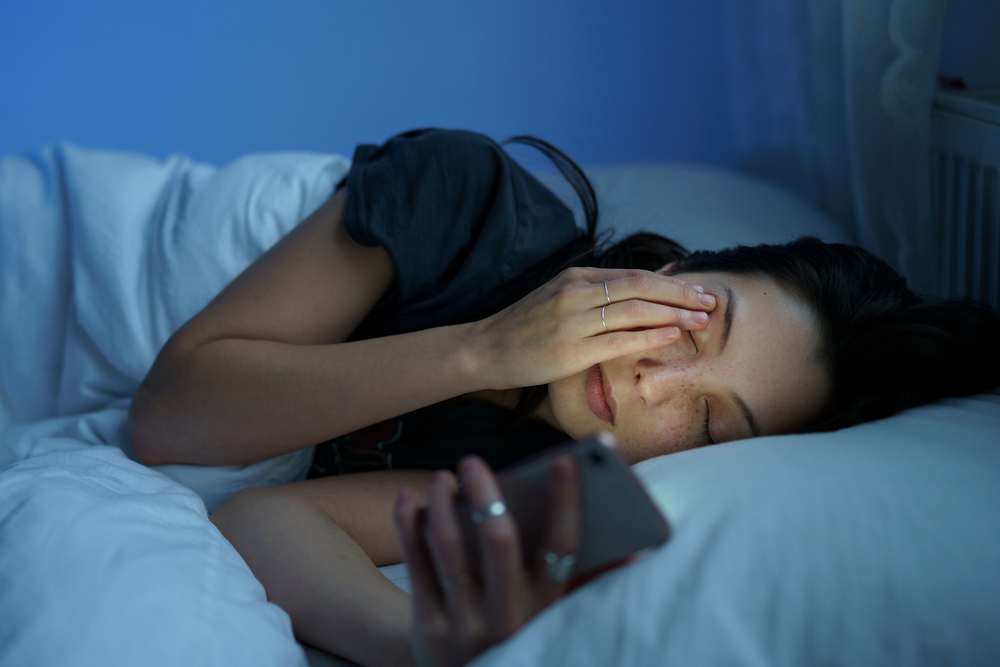
If you’ve ever thought to yourself, “Can you be depressed without being sad?” you’re not alone.
When thinking of depression, many people assume that it is synonymous with sadness, hopelessness, and lack of motivation.
While these feelings can certainly be a part of the condition, they’re not the only signs and symptoms.
Being depressed doesn’t always mean being sad; in fact, depression can manifest in some very unexpected ways. Let’s break down what you need to know about depression.
Is Sadness The Only Sign Of Depression?
It’s a common misconception that depression has to come packaged with a side of sadness. However, depression is far more complex than its negative connotations suggest; it doesn’t always manifest itself through tears and grimaces.
In fact, depression can look like anger and exhaustion, or one might be relatively “high functioning” while still struggling internally with the effects of depression.
As such, mental health awareness should aim to normalize depression without feeling sad as one possible scenario. It’s unfortunate that depression is often mistaken for simply being down in the dumps for some unknown reason; if we are able to accept depression in its various forms, then maybe those impacted can begin their journey toward treatment sooner rather than later.
Can You Be Depressed Without Being Sad? Depression Without Sadness
So, can you have depression without being sad?
The short answer? Absolutely.
You can be sad without depression, and depression can often present itself in ways different than mere sadness. If depression wasn’t complicated enough, why not throw in a few more symptoms that don’t even include feeling blue?
Sometimes depression can come shrouded in an odd mix of symptoms, so it’s essential to pay close attention to the whole picture.
We’ll get into what depression can look like beyond sadness so that you can determine whether or not you should seek professional help from a mental health professional.
Depression Symptoms (Without Sadness):
Significant Weight Gain or Weight Loss
Depression has become increasingly common in our modern world, and its effects on physical health have come into sharper focus.
One of depression’s main symptoms is a change in appetite or food intake. This can lead to either weight gain or weight loss, depending on the individual’s unique circumstances.
Some depression sufferers experience a decreased appetite and therefore lose weight whereas others turn to food as a comfort and respond with an increase in body mass.
These two scenarios are equally possible when dealing with depression, so it pays to be aware of how depression affects your eating habits.
Changes In Your Appetite
As we briefly touched on above, depression can often cause you to change your appetite, whether that be a decrease or an increase.
This is because depression symptoms can have a major effect on how your brain works and interacts with your body, leading to disturbances in how you perceive hunger levels, how much you enjoy food, or even how much of an appetite you have.
It really doesn’t matter which way your depression affects your appetite – either way, it’s clear depression has the power to make it hard to have a healthy relationship with food!
Sleep Disruptions
Depression can be a difficult condition to manage, but one of the more perplexing depression symptoms is its effect on one’s sleep patterns.
When depression takes its toll, it can sometimes cause sufferers to either have insomnia or hypersomnia – two extreme states of sleep disruption.

So why does depression make it difficult for some individuals to get the proper amount of rest they need?
To understand this, we must look at depression as an imbalance between certain brain chemicals; particularly serotonin and dopamine levels. When these neurotransmitters are out of balance, depression symptoms worsen and can affect our ‘sleep-wake’ biological cycle thus leading to changes in our sleep patterns.
Internal Negative Feelings
It’s a truth often forgotten: depression doesn’t always come with the feeling of sadness. It can manifest in the form of internal negative feelings such as worthlessness, shame, or guilt.
But why? Why does depression cause these feelings that leave us feeling lonely and unimportant?
It turns out depression does what it does best – blankets you in darkness by consuming your thoughts with low self-esteem narratives and creating an environment where anything positive seems impossible to accept.
In short: depression forces us to view ourselves from a pessimistic perspective and makes us unable to tap into our own inherent worthiness.
Lack of Overall Interest
Our minds can be incredibly powerful tools, both good and bad. For those struggling with depression, the effects can be detrimental: a general lack of interest in life and the once enjoyable activities that may have inspired joy in the past.
What’s particularly interesting is that not everyone suffering from depression experiences an emotionally extreme reaction – there are cases of depression without being sad; instead causing overall fatigue for life that makes it hard to motivate oneself to engage in activities both large and small.
Without access to resources and treatments depression can deepen, leaving those afflicted listless and utterly uninterested in activities they would usually enjoy.
Loss of Energy
If your life has been feeling a little low of late, have you ever stopped to think if it’s because you’re depressed?
If anything, the fatigue and lack of energy that come with depression make a person sink even lower.
It’s like a double-edged sword – depression saps motivation and energy from us to do things we used to take joy in doing, and this leads to more fatigue and feeling hopeless.
Change In Libido
It’s a difficult thing to pin down any one reason why depression can lead to a change in libido, but it’s a very real phenomenon nonetheless.
From the physical effects of depression that can sap energy away to the psychological stresses associated with depression that leaves you feeling disconnected or even numb – mood disorder can have an unseen impact on libido.
It’s almost as if depression switches off a pleasure switch entirely, leaving you struggling to feel aroused or enjoy sexual relations. This isn’t something people talk about often, but for those living with depression, it’s a significant factor worth considering and addressing.
Difficulty Concentrating
It’s not just a slump of low spirits – depression can actually do something a lot more subversive to your concentration.
The depressed mind is like an engine with faulty wiring – it can give you performance, but at a cost. People suffering from depression may find it difficult to concentrate even when they feel relatively upbeat.
It’s like being depressed without feeling sad- the downsides are still there, but you have no visible cues as to why things aren’t going your way.
The cause? Low serotonin levels lead to the brain’s reduced capacity to modulate and control thoughts, making it harder for depressed people to focus and filter out distractions.
Suicidal Thoughts
While depressed people are often associated with sadness, it may come as a surprise that many depressed individuals don’t actually feel sad.
Nevertheless, depression can still cause suicidal thoughts and behaviors, leaving many wondering—how can this be?
Well, even if you don’t feel sad when depressed, you’re still likely to carry feelings of worthlessness and hopelessness. Negative thoughts about life in general—or your own personal struggles—can increase a feeling of helplessness that gradually erodes away any sense of joy or satisfaction in life.
Since life does not seem to offer anything valuable, the only logical conclusion for some is suicide. It’s important to remember that depression or not, nobody should ever take their own life–no matter what challenges they face.
Increased Alcohol Intake
When thinking about depression, one may immediately tie it to feeling sad. But sometimes the depressed can suffer without noticing; a depressed individual can be walking around seemingly unscathed but still struggling internally.
This internal battle is one that can push a person towards increasing their alcohol intake as an attempt to cope with their depression. Indeed, depressed individuals often feel like alcohol is the only way to make themselves feel better and “escape” from their internal struggles.

While this may provide temporary relief, it’s never truly a solution and will eventually start causing greater problems in a depressed individual’s life.
In Summary
Many people claim they don’t feel anything at all when depressed – not even sadness. Instead of experiencing waves of emotional upheaval, they just feel “numb” as if an emotional blanket has been thrown over them and even the most drastic situations can induce no response from them.
That said, although it’s not always accompanied by a sense of sadness, depression is still an incredibly serious illness and should be taken very seriously.
Seeking treatment for depression is absolutely essential – regardless of whether you find yourself in a state of tears or simply devoid of any emotion whatsoever.
Why? Because ignoring these signals will not make it go away and reaching out is crucial in order to potentially prevent further deterioration.
The point is: there are way more forms of depression than having blue days, so don’t ignore concern if you suspect something is up.